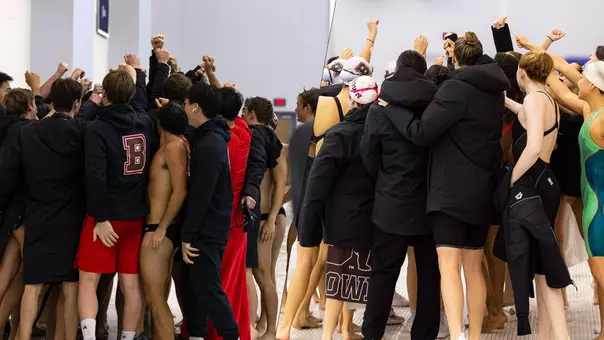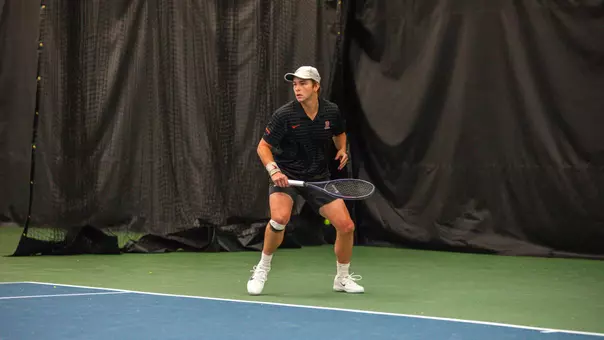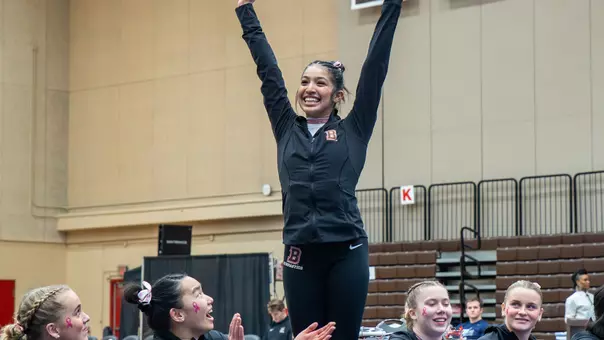Hall of Fame

- Induction:
- 2024
- Class:
- 2000
Joukowsky Humanitarian Award — Honoring the lives of Artemis A. W. Joukowsky ’55 and Martha Sharp Joukowsky ’58, Brown ambassadors of goodwill, this award is presented to an individual who has made significant contributions to the betterment of society and reflects the highest ideals of sport.
Eli Wolff was a lifelong advocate for people with disabilities, especially in sports. At age two, he became partially paralyzed from a stroke following heart surgery. This life-altering event was the catalyst that propelled Eli in his passionate quest for disability justice for all. Eli never let his disability negatively define him. He identified as an athlete and was incredibly passionate about soccer. “Soccer was where I could feel free, a safe place,” he told the Boston Globe in a 2007 interview. A Brown Men’s Soccer classmate remembers Eli, who “trained with the team for four years…He was a great player, man, and advocate for inclusion in sports.” Eli spent 10 years as a pioneering Cerebral Palsy National Soccer Team member from 1995 - 2004, representing the United States at the 1996 and 2004 Paralympic Games and the World Cup. He met his wife Cheri, who competed in the Paralympics in the early 2000s through their sports inclusion advocacy.
Modeling sports participation was just a tiny slice of Eli Wolff’s powerful advocacy for people with disabilities. He worked tirelessly at all levels to promote opportunity and understanding of the moral imperative to embrace all human beings. After his untimely passing in 2023, U S Soccer praised Eli’s “tireless global advocacy work,” noting that he “aimed to provide everyone, no matter their background or ability, a place in a sport that made them feel empowered and find joy.”
On the world stage, Eli helped establish the ESPY Award For the Best Male and Female Athlete With a Disability. He also worked to galvanize support for pro golfer Casey Martin in his successful Supreme Court cases against the PGA. Eli received the Casey Martin Award in 1999 for an athlete “who has done the most to promote disability rights.” Another significant victory was Eli’s work to include sport-related provisions in the United Nations Convention on the Rights of Persons with Disabilities. He understood that words matter, especially in the policies of influential organizations. Eli was a key participant in drafting the US Office Civil Rights 2013 letter, which amended requirements for equity and inclusion in school-based athletics for students with disabilities. He also tackled Major League Baseball, finally forcing it to change the title of their Disabled List to Injured List after a 15-year struggle. Finally, Eli was proud of his efforts to create the United Nations International Day of Sport for Development of Peace, celebrated every April 6. Eli Wolf’s fierce determination and profound intellect were always at work for noble causes.
Eli’s welcoming and gentle manner also enabled him to cobble together and inspire various groups of individuals. From his academic positions at Brown, Northeastern, and the University of Connecticut, he impacted countless students to embrace his vision of sports equity. His legacy at Brown lives on in the recent creation of the Disability and Neurodivergence Alumni Collective Affinity Group (DNAC).
Eli’s dream was a more pure world in which all athletes would engage in sports together, without separation based on ability. He was a true humanitarian whose spirit lives on through his wife Cheri and their children Stella and Spencer. Perhaps his beloved families’ tribute after his passing captures Eli best:” Eli embodied the Olympic spirit, delicately connecting the worlds of human rights and sport like no other person has done.”














.png&width=60&height=60&type=webp)





















































